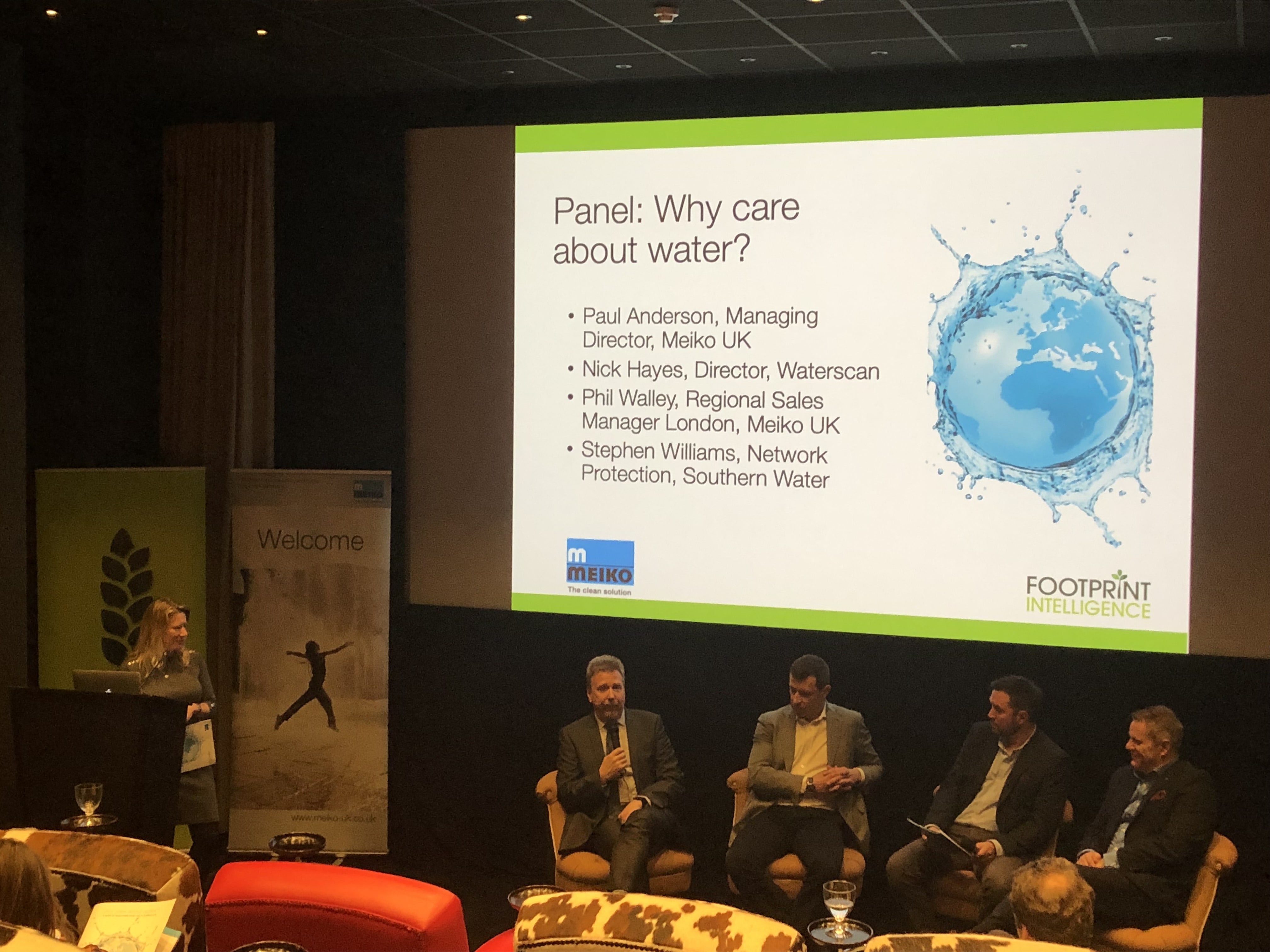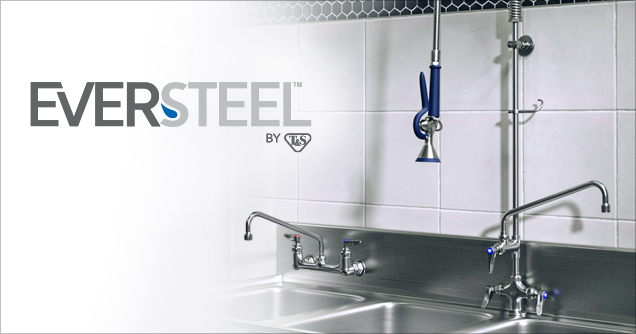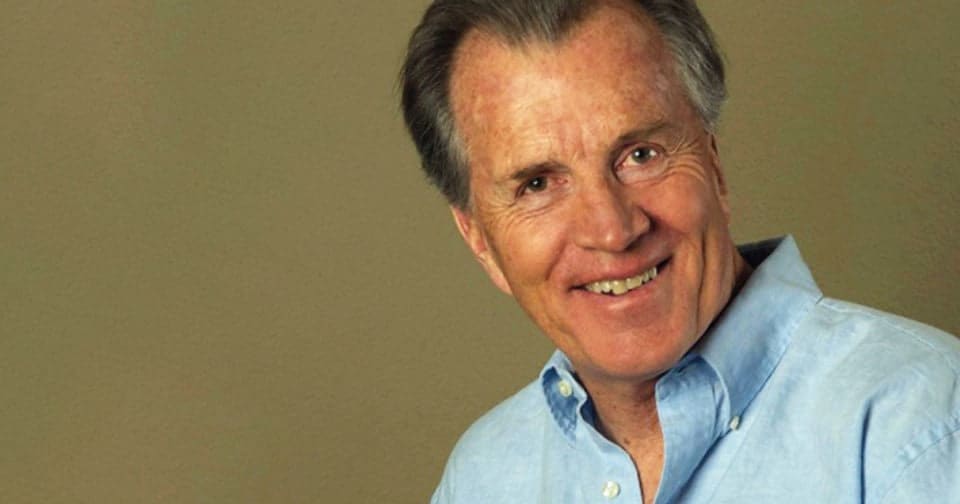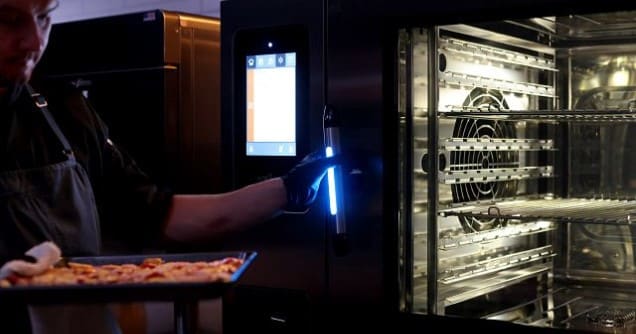
Water has become the “environmental elephant in the room” according to Nick Fenwicke-Clennell of Footprint Intelligence, which launched its Why Care About Water guide with Meiko in London this week.
The guide to “responsible water use in foodservice” aims to draw increased attention to the practical steps operators, manufacturers and consultants alike can make in order to drive a more efficient use of water in the sector.
Addressing the blind spot
“Water use in kitchens is a blind spot,” said guide author Amy Fetzer of Footprint. The guide, which features interviews with a number of operators, manufacturers and water experts, suggests the issue of water use is too easily conflated with general ‘sustainability’ initiatives. The result is the issue of water use and efficiency is rarely tackled in isolation in foodservice, despite an ever-pressing need.
“We are literally ringing the planet of water,” said Meiko UK’s managing director Paul Anderson. “It’s a global problem. By 2030 the world will only have 60% of the water it needs.”
With one in nine people globally already unable to access enough water and with fresh water only accounting for 2.5% of the earth’s water (and only 0.5% available for human consumption) the topic is timelier than ever before.
The business case
“We need to better ourselves. Even the UK is vulnerable,” said Anderson, with WRAP reporting 50% of the UK’s food is at risk of disruption from water scarcity.
“The UK has less rain than Northern Europe and is drier than Istanbul,” said Fetzer. “It’s a real issue here.”
And it’s not just the ethical or environmental concern that should be front of mind for foodservice operators, with water costs accounting for between 1-2% of a UK’s-based company’s turnover. Operators, said Fetzer, can save on tax costs with efficient installations and retrofitting.
Work with manufacturers
The guide also presents a practical ‘operator action plan’ that implores users to find out how much water they use. “If you can’t measure it, you can’t manage it,” said Fetzer, who recommends operators install submeters, get regular water meter readings from providers, conduct regular audits of water use and, crucially, engage staff.
“Incorporate water practices into routine and mandatory training,” said Fetzer, who also implored operators to “harness the power” of manufacturers. “They are a key ally. Responsible manufacturers have made some great strides to improve working conditions. There is some amazing innovation out there,” she said.
Fetzer also recommended fixing the bad, “common habits” of staff, such as ending the practice of taps being left to run, warewashers and combi ovens being switched on all day whatever the required usage and wasting water, as well as reducing the flow of water with aerators and pressure regulators.
“One dripping tap can waste at least 5,500 litres per year. But replacing rubber rings and valves in taps is so cheap,” she said.
The water board
An absorbing panel session followed the guide launch, chaired by Fetzer and featuring Anderson, his Meiko colleague Phil Walley, Stephen Williams of Southern Water and Nick Hayes of Waterscan.
“Most chefs just aren’t aware of the impact of turning on kitchen equipment and leaving it running all day,” said Walley.
“Warewashers and combi ovens use a lot of water, but if you stand in your kitchen at home you would never keep your kettle on all day, just in case you wanted a cup of tea,” said Anderson.
“It’s about practice and education of staff. Preventative education is key,” said Hayes.
Williams highlighted the potentially costly and, in extreme cases, legal redress for operators found guilty of blocking sewers with food, fats, oil and grease (FFOG). “That said, I’m surprised there hasn’t been more fines for operators. But there is still a reluctance to prosecute.”
Hayes agreed the way to get the industry to truly act on water waste is for potentially stronger punitive action. “The risk for operators is there is a massive impact to them if they were to lose their water supply. That’s the incentive to change,” he said.
“There is no longer any excuse,” said Fetzer in conclusion. “Stop sending money down the drain and take action on water.”
Further details:
A complete copy of the Why Care about Water guide from Footprint Intelligence and Meiko, can be downloaded free of charge here.
Michael Jones




